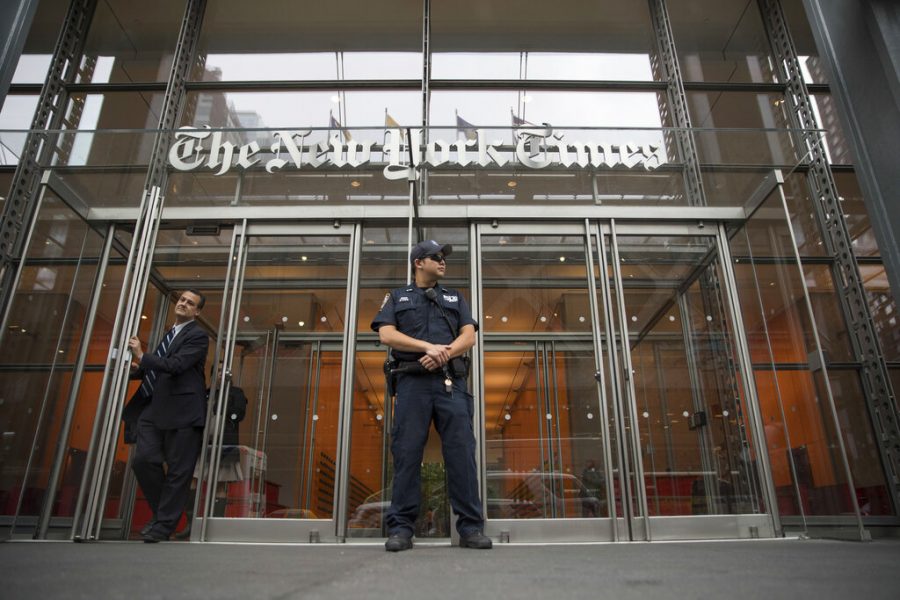Biden’s pledge on media freedom may be easier said than done
Biden’s stated commitment has won support from press freedom groups, but whether the promise can be kept remains unclear.
MARY ALTAFFER / Associated Press
A police officer stands outside The New York Times building.
June 3, 2021
WASHINGTON — One of the Biden Justice Department’s first big moves was to alert reporters at three major news organizations that their phone records were seized as part of leak investigations under the Trump administration, with President Joe Biden promising to abandon the practice of spying on journalists.
But while Biden’s stated commitment has won support from press freedom groups, whether the promise can be kept remains unclear, especially because Democratic and Republican administrations alike have relied on reporters’ phone records to suss out leaks of classified information. Biden’s commitment was all the more striking given his pledge to uphold the tradition of an independent Justice Department.
“In this case, it seems bad policy to institute an absolute ban on logical investigative actions geared to finding out who violated the law, particularly in instances where the journalists themselves whose records may be at issue are not the subject or target of criminal investigation,” said David Laufman, a former Justice Department official who led the section that oversaw investigations into leaks.
The Justice Department in recent weeks disclosed that federal investigators had secretly obtained call records of journalists at The Washington Post, The New York Times and CNN in an effort to identify sources who had provided national security information published in the early months of the Trump administration.
Past administrations also have struggled to balance the media’s First Amendment newsgathering rights against government interests in safeguarding national security secrets. Inside the Justice Department, officials have on several occasions over the years revised internal guidelines to afford media organizations better protection without removing from their arsenal the prerogative to subpoena reporters’ records.
Biden appears to be looking to change that.
He told a reporter last month that seizing journalists’ records was “simply wrong” and that the practice would be halted under his watch. After the most recent revelation — that four New York Times reporters had their records secretly seized last year — White House press secretary Jen Psaki reaffirmed the commitment to freedom of the press. But she also said discussions with the Justice Department were still underway and that new policy was ready to be announced.
Michael Weinstein, a former Justice Department prosecutor and criminal defense lawyer in New Jersey, said he understood Biden’s comments as clarifying his disdain for the practice without closing the possibility that it could ever be used.
“I don’t think he’s saying you can never do it,” he said. “I think he’s saying the standards have to be higher.”
The Justice Department says it has concluded notifying the media organizations whose phone records were accessed. The latest revelation came Wednesday when The Times said it had learned that investigators last year secretly obtained records for four reporters during a nearly four-month period in 2017.
The department said the reporters are neither subjects nor targets of the investigation but did not reveal which leak was under investigation.
The four reporters shared a byline on an April 2017 story that detailed the FBI’s decision-making in the final stages of the Hillary Clinton email investigation.



